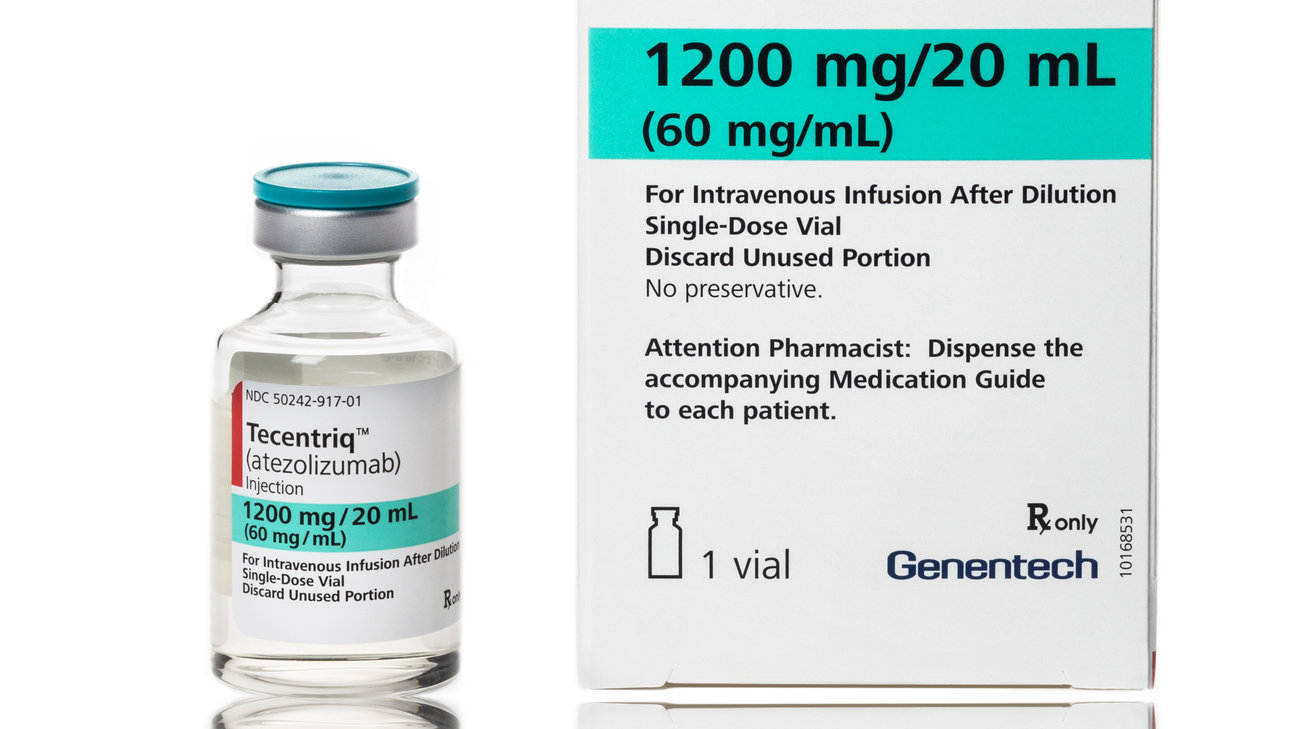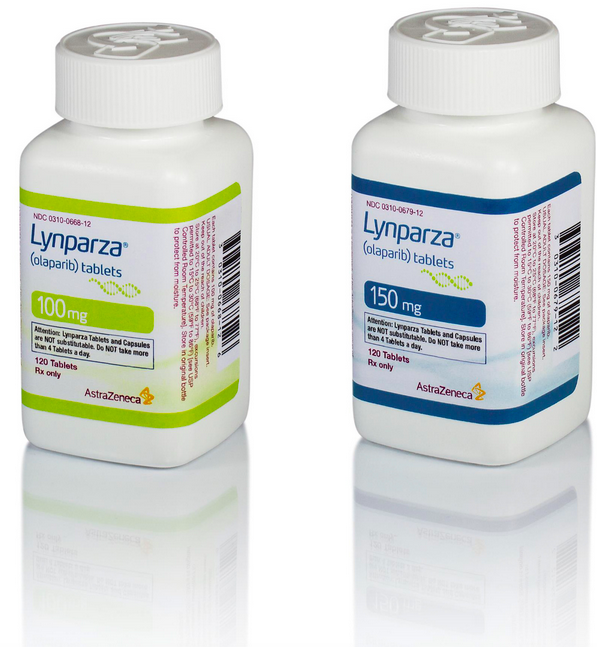Tecentriq (Atezolizumab) vs Lynparza (olaparib)
Tecentriq (Atezolizumab) vs Lynparza (olaparib)
Tecentriq (atezolizumab) is an immune checkpoint inhibitor that works by blocking the protein PD-L1, which can help the body's immune system attack cancer cells, and is commonly used for certain types of lung, bladder, and triple-negative breast cancers. Lynparza (olaparib) is a PARP inhibitor designed to exploit specific defects in cancer cells' DNA repair pathways, and it is primarily used for treating ovarian, breast, pancreatic, and prostate cancers with certain genetic mutations (BRCA1 or BRCA2). When deciding between Tecentriq and Lynparza, the choice would depend on the specific type of cancer, its genetic profile, and the overall health and treatment goals of the individual, as these medications are not directly interchangeable and target different mechanisms of action within cancer treatment.
Difference between Tecentriq and Lynparza
| Metric | Tecentriq (Atezolizumab) | Lynparza (olaparib) |
|---|---|---|
| Generic name | Atezolizumab | Olaparib |
| Indications | Urothelial carcinoma, non-small cell lung cancer, triple-negative breast cancer, small cell lung cancer | Ovarian cancer, breast cancer, pancreatic cancer, prostate cancer |
| Mechanism of action | PD-L1 inhibitor, immune checkpoint inhibitor | PARP inhibitor |
| Brand names | Tecentriq | Lynparza |
| Administrative route | Intravenous infusion | Oral |
| Side effects | Fatigue, nausea, decreased appetite, urinary tract infection, fever | Anemia, nausea, fatigue, vomiting, respiratory infections |
| Contraindications | None known specific to atezolizumab | None known specific to olaparib |
| Drug class | Monoclonal antibody, immune checkpoint inhibitor | Poly (ADP-ribose) polymerase inhibitor |
| Manufacturer | Genentech (Roche) | AstraZeneca, Merck |
Efficacy
Tecentriq (Atezolizumab) in Breast Cancer
Tecentriq, also known by its generic name atezolizumab, is an immunotherapy drug that has shown efficacy in the treatment of certain types of breast cancer. Specifically, it is used for the treatment of PD-L1-positive, metastatic triple-negative breast cancer (TNBC). Atezolizumab is a monoclonal antibody that works by blocking the PD-L1 protein on cancer cells, thereby enabling the immune system to recognize and destroy these cells. The efficacy of Tecentriq in breast cancer was demonstrated in clinical trials, where it was shown to improve progression-free survival when used in combination with chemotherapy compared to chemotherapy alone.
Lynparza (Olaparib) in Breast Cancer
Lynparza, or olaparib, is a targeted therapy known as a PARP inhibitor. It has been approved for the treatment of HER2-negative metastatic breast cancer in patients who have a germline BRCA mutation. Olaparib works by interfering with the DNA repair process in cancer cells, which can lead to cell death, particularly in cells that are already compromised by a BRCA mutation. Clinical trials have shown that Lynparza significantly improves progression-free survival in patients with BRCA-mutated, HER2-negative metastatic breast cancer compared to standard chemotherapy treatments.
Combination Therapy and Patient Selection
While both Tecentriq and Lynparza have shown efficacy as monotherapies in specific subtypes of breast cancer, the selection of patients for these treatments is critical to their effectiveness. For Tecentriq, the presence of PD-L1 protein is a prerequisite for its use, while for Lynparza, patients must have a confirmed germline BRCA mutation. The efficacy of these drugs can also be influenced by factors such as prior treatments, the extent of the disease, and overall patient health. As such, personalized treatment approaches are essential for optimizing outcomes in breast cancer therapy.
Conclusion
Both Tecentriq and Lynparza represent significant advancements in the treatment of breast cancer, offering new hope for patients with specific disease characteristics. Tecentriq is particularly beneficial for patients with PD-L1-positive, metastatic TNBC, while Lynparza is a valuable option for those with a germline BRCA mutation and HER2-negative metastatic breast cancer. The efficacy of these drugs underscores the importance of molecular testing and personalized medicine in the management of breast cancer. Ongoing research and clinical trials continue to refine the use of these therapies and explore their potential in combination regimens or for other indications within breast cancer treatment.
Regulatory Agency Approvals
Tecentriq
-
European Medical Agency (EMA), European Union

-
Food and Drug Administration (FDA), USA

-
Health Canada

-
Pharmaceuticals and Medical Devices Agency (PMDA), Japan

-
Therapeutic Goods Administration (TGA), Australia

-
Medsafe (NZ)

Lynparza
-
European Medical Agency (EMA), European Union

-
Food and Drug Administration (FDA), USA

-
Health Canada

-
Therapeutic Goods Administration (TGA), Australia

-
Medsafe (NZ)

Access Tecentriq or Lynparza today
If Tecentriq or Lynparza are not approved or available in your country (e.g. due to supply issues), you can access them via Everyone.org.
How it works

Make an enquiry
Choose the medicine you want to buy, answer a couple of questions, and upload your prescription to speed things up. We’ll get back to you within 24 hours.


Make an enquiry
Choose the medicine you want to buy, answer a couple of questions, and upload your prescription to speed things up. We’ll get back to you within 24 hours.


Breeze through the paperwork
We'll guide you through the required documents for importing unapproved medicine, ensuring you have all the necessary information.


Get a personalized quote
We’ll prepare a quote for you, including medicine costs and any shipping, administrative, or import fees that may apply.


Receive your medicine
Accept the quote and we’ll handle the rest - sourcing and safely delivering your medicine.

Some text on this page has been automatically generated. Speak to your physician before you start a new treatment or medication.
Let's talk
If you have any questions, call us or send us a message through WhatsApp or email:
Contact us




